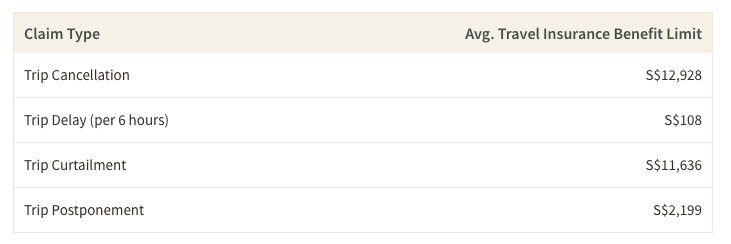Will Your Travel Insurance Cover You in the Event of an Airline Strike?
As you are gearing up to go on vacation, you may be prepared to experience some minor disappointments. Flight delays, lost baggage and even pick-pocketing are all accepted risks of travel. On the other hand, most people rarely anticipate airline strikes, which could leave them stranded with little recourse. Unfortunately, this happened twice in the first half of 2019, first with China Airlines in February and then with EVA Air in June. After the first strike in February, 50,000 passengers were affected after more than 200 flights were cancelled. The EVA Air strike in June had an even bigger impact, with over 850 total flights expected to be canceled and more than 170,000 passengers affected. So what happens to travellers who are victims of airline strikes? We discuss the options below.
How is the Airline Responding?
Five days after the inception of the most recent EVA Air strike, EVA Air's website is still showing a large portion of cancelled flights, including Singapore-Taipei routes. However, the airline has said that it is working to arrange alternative flights and reduce delays. This means that the passengers who were affected will most likely get rescheduled to operating flights without having to pay extra. Furthermore, according to EVA Air's website, the airline will be waiving the service and tax difference fees, as well as no-show fees. Lastly, EVA Air will waive the cancellation fee and refund 695/525 tickets traveling on EVA or UNI Air operated or marketing flights.
What to Do if Your Trip Was Affected by a Riot Strike
If you are a traveller caught in the midst of an airline strike, there are a couple of things you can do to decrease your trip disruption and any financial losses. Regardless of whether you are in the middle of your trip or have an upcoming one, you should call their travel agent or the airline directly to figure out your options. While EVA Air was fairly generous in waiving their fees, airlines are not actually obligated to do anything to help passengers. Thus, you should expect every airline to respond to their strikes differently and have a contingency plan in the event you won't receive any help. Despite this uncertainty, airlines have typically waived rebooking fees or put travellers on a standby flights with partner airlines when labour strikes occured. In this case, getting to the airport early may help you secure a flight as close to your original departure time as possible.
Will Travel Insurance Cover Financial Losses Due to Airline Strikes?
Whether you are in the middle of your trip or haven't left yet, you should confer with your travel insurer if the airline isn't being helpful. Generally, if you are able to recoup the costs for trip delays, disruptions or cancellations with your travel agent or airline, your insurer won't approve your claim. However, if the airline won't cover rebooking fees or doesn't offer compensation for delays, then you may be able to file a claim with your travel insurer. In order for your claim to be successful, the insurer must explicitly mention that industrial strikes are covered under their policies. You can also call your insurer if you are unsure of the language in your travel plan's policy document. Most plans offer 24/7 emergency assistance so you can call them from anywhere in the world at any time.

However, you may not be covered if you brought a travel insurance policy after the news of the strike was made public. Furthermore, some insurers will only cover strikes that caused Singapore to issue a travel advisory. If you travel insurer doesn't cover disruptions due to airline labour strikes, you can see whether your credit card's travel insurance policy will cover you instead. For instance, the UOB PRVI Miles American Express card has a travel insurance policy that will pay out for a travel delay every 6 hours due to strikes (image below).

Tips on Reducing Financial Loss During Travel Emergencies
While you can never fully avoid the risks associated with travel, there are a few things you can to reduce the impact of a travel-related emergency. For one, travel insurance is a great way to protect yourself financially against a majority of travel-related issues. When looking for a policy, you should read the policy wording to make sure it covers all of your concerns. It also helps to find policies that may cost slightly more but are more lenient in their coverage. For instance, some travel insurance policies will let you claim for travel cancellations for any reason. Buying your policy as soon as you book your airfare and hotel can also prevent your insurer from denying your claim because you bought a policy after a disruption was made public.
Second, it is worth budgeting a little more than you need for your trip. This way, you'll have an emergency fund to draw money from, and you won't be forced to draw from your hard-earned savings if you can't get your money back. Last, you should stay aware of what is happening in your destination country. As soon as news of any potential trip disruptions are made public, you should reach out to airlines, hotels and your insurer to see what your options are. Staying aware and taking action as soon as possible is usually the best way to reduce stress and start working on solutions.

